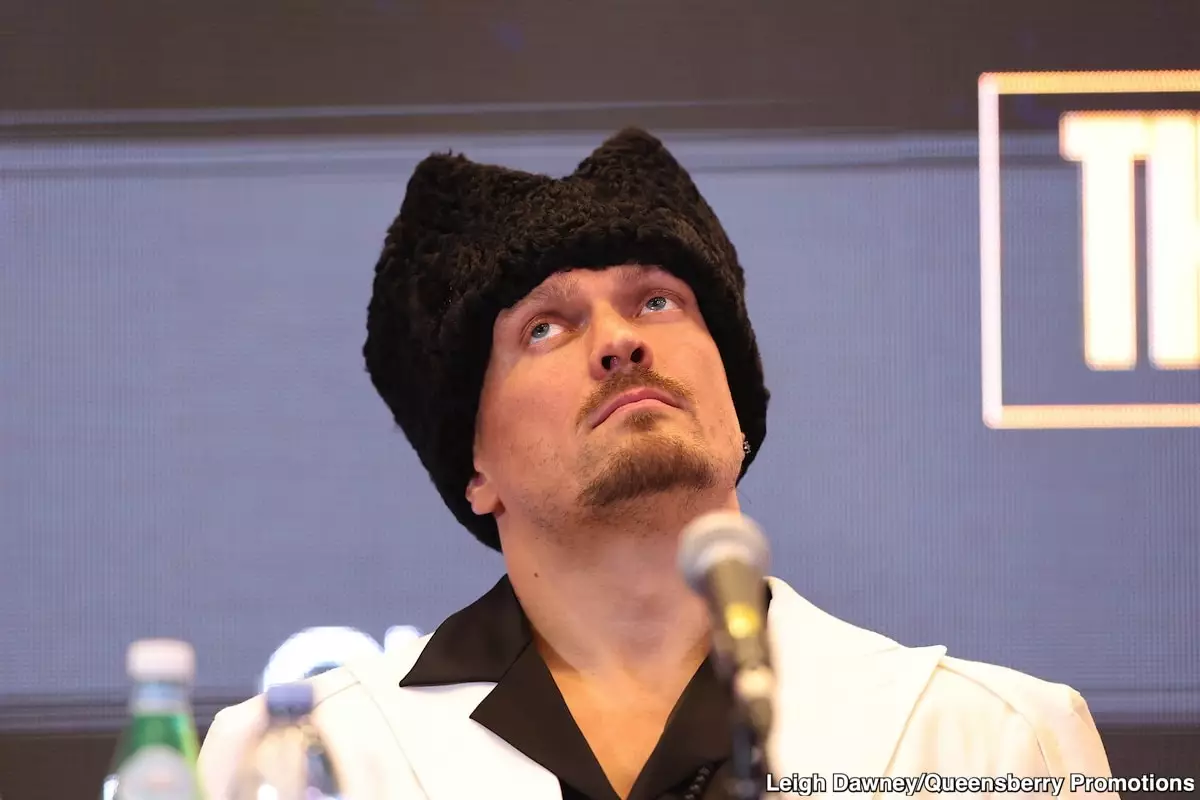In the world of boxing, excitement naturally centers around fresh talent and rising stars. The recent hype surrounding Moses Itauma exemplifies this phenomenon: a young, promising heavyweight presented as the inevitable future of the division. Yet, a critical eye reveals a common trap fighters, commentators, and even fans fall into—overestimating the potential of youth and underestimating the experience of seasoned champions. Tyson Fury’s recent praise for Itauma, while encouraging on the surface, showcases a dangerous tendency to prematurely crown new contenders without fully appreciating the complexities of the sport and the resilience of veteran fighters.
Fury’s endorsement, framing Itauma as a future destroyer, is not uncommon among those eager to simplify boxing narratives. Such declarations often ignore the deeply ingrained skills, tactical intelligence, and mental toughness that come from years of high-level competition. Overestimating raw talent overlooks that boxing greatness isn’t just about power or youthful energy; it’s about mastery, adaptability, and the ability to innovate under pressure. This oversimplification can distort perceptions of what it takes to succeed at the highest level and may lead to misplaced expectations that do not hold up in a real ring encounter.
The Myth of Youth as an Equalizer
Many boxing fans and pundits erroneously believe that youth automatically confers an unassailable edge. They view younger fighters as inherently superior, as if physical attributes alone guarantee victory. But history is littered with examples of older, more experienced fighters outthinking and outlasting physically primed opponents. Look at the dominance of seasoned champions like Tyson Fury himself, whose craft and ring intelligence have often overshadowed younger, more athletic foes. The idea that Itauma, or any young fighter, will effortlessly dominate the elder statesmen of the division overstates youth’s importance and understates the value of tactical discipline.
Evidently, fighters like Oleksandr Usyk demonstrate this point. Usyk’s technical mastery, footwork, and emotional intelligence have allowed him to dismantle larger and physically imposing rivals. His success isn’t merely based on skill but on understanding the subtleties of timing, positioning, and mental resilience—qualities built over years of concentrated effort. To dismiss these factors as irrelevant in favor of “youthful energy” is to ignore the fundamental truths of boxing storytelling: experience often wins the day.
The Hype Train: When Promises Outpace Reality
History warns us about the risks of prematurely anointing fighters as future legends. Fury’s comparison of Itauma to the future of boxing echoes a pattern of inflated praise that ultimately backfires. Promoters and pundits have a habit of showering young prospects with hope, only for the realities of the sport to swiftly remind everyone of their limitations. Jared Anderson and Martin Bakole serve as cautionary examples. Anderson was heralded as a budding superstar but was swiftly derailed by mature opponents with a clear game plan. Such overhyped projections often set unrealistic expectations, leading to disappointment and unfair scrutiny.
Fury’s tendency to declare fighters as “the future” can be more than misguided optimism; it can be a curse. When hype obfuscates the genuine assessment of a fighter’s capabilities, it sets them up for failure. The pressure to live up to lofty expectations can lead to overtraining, mental fatigue, and reckless confidence. Youthful optimism is essential but must be balanced with pragmatic evaluation rooted in the realities of combat sports.
Respecting the Craft and Recognizing Reality
While there’s no denying Itauma’s impressive physical tools and potential, it’s crucial to approach such prospects with tempered expectations. The heavyweight division, known for its unpredictability and capacity for transformation, rewards fighters who combine raw talent with strategic intelligence. Usyk’s example demonstrates that mastery is a long game—one that young fighters like Itauma will need years to fully develop. It’s naive to believe that a two-minute blitz or a string of knockout victories automatically translate into division dominance.
Fury’s exuberant predictions, though exciting, risk oversimplifying the intricate dance of boxing. Recognizing the gap between potential and achievement is vital for fans, fighters, and commentators alike. True greatness in boxing requires not just physical prowess but mental toughness, adaptability, and continuous learning—traits that seasoned champions have honed through countless battles. To crown a young contender as the next king prematurely does a disservice to the sport’s depth and artistry.
The hype surrounding youthful fighters should be approached with cautious skepticism. While the emergence of new talent is encouraging, it’s essential to respect the journey, experience, and tactical brilliance that define true champions. History teaches that longevity, discipline, and resilience often outweigh raw talent—lessons that even the most gifted young fighters must learn before truly claiming their crown.

